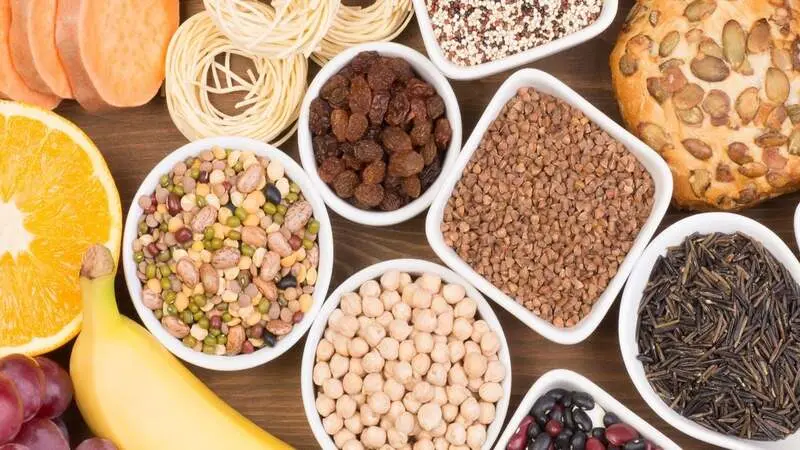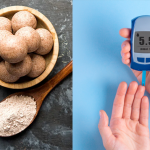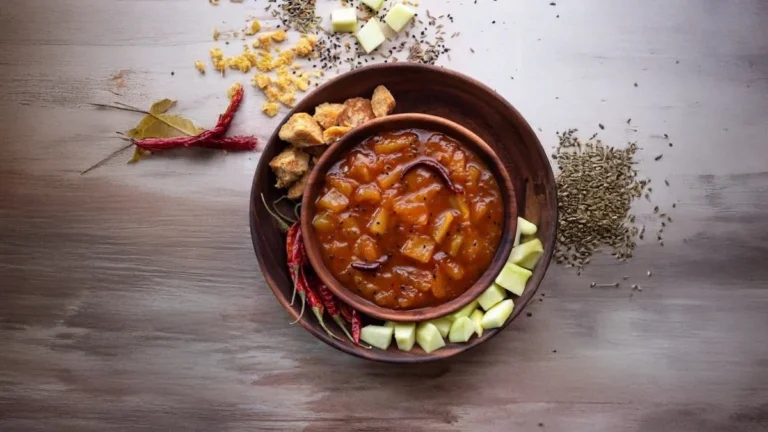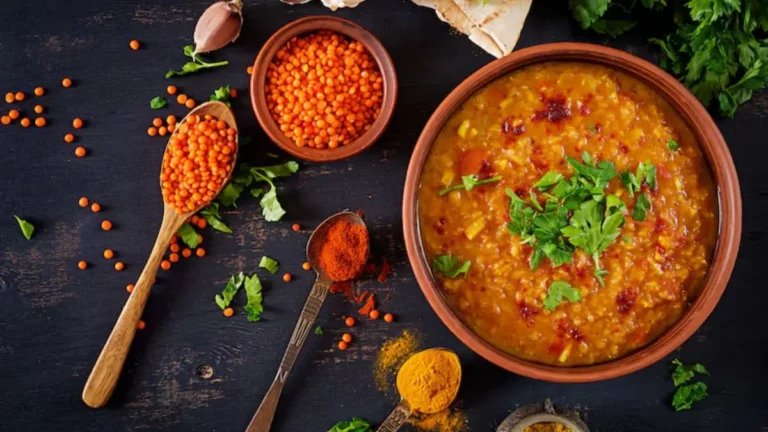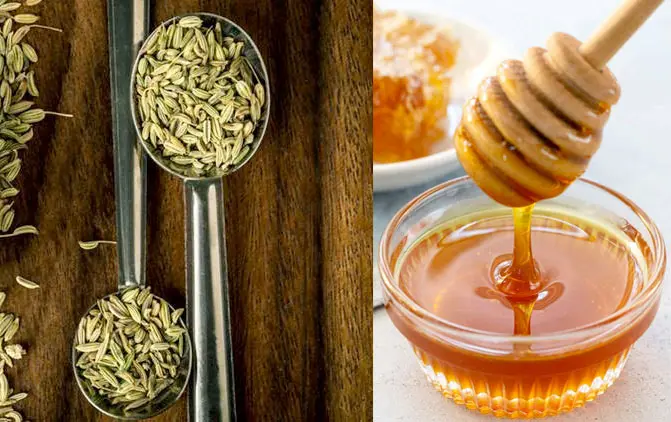Diabetes is a chronic condition characterized by elevated blood glucose levels, and it requires careful management of dietary choices to maintain blood sugar within a healthy range. Carbohydrates are a key component of managing diabetes because they have the most significant impact on blood sugar levels. However, not all carbohydrates are created equal. In this comprehensive guide, we will explore healthy carbohydrate options for diabetic patients, emphasizing the importance of carbohydrate quality, portion control, and individualized meal planning.
Understanding Diabetes
Before delving into healthy carbohydrate options, it’s crucial to have a basic understanding of diabetes and how it affects blood sugar levels:
- Type 1 Diabetes: This is an autoimmune condition in which the body’s immune system mistakenly attacks and destroys insulin-producing cells in the pancreas. People with type 1 diabetes require insulin injections or an insulin pump to manage their blood sugar levels.
- Type 2 Diabetes: This is the most common form of diabetes and is often associated with lifestyle factors such as obesity and physical inactivity. In type 2 diabetes, the body’s cells become resistant to insulin, and the pancreas may not produce enough insulin to maintain normal blood sugar levels. Management typically involves lifestyle changes, medication, and sometimes insulin therapy.
- Gestational Diabetes: Occurring during pregnancy, gestational diabetes is characterized by elevated blood sugar levels. It usually resolves after childbirth but may increase the risk of developing type 2 diabetes later in life.
- Prediabetes: Prediabetes is a condition in which blood sugar levels are higher than normal but not high enough to be classified as diabetes. It is often a precursor to type 2 diabetes and can be managed and even reversed through lifestyle changes.
The Role of Carbohydrates in Diabetes
Carbohydrates are one of the three primary macronutrients, alongside proteins and fats. When consumed, carbohydrates are broken down into glucose (sugar) in the bloodstream, which raises blood sugar levels. For individuals with diabetes, managing carbohydrate intake is essential to prevent blood sugar spikes and maintain stable glucose levels.
Carbohydrates are not the enemy for people with diabetes. Instead, it’s about choosing the right types of carbohydrates and controlling portion sizes to achieve better blood sugar control. Carbohydrate quality, fiber content, and the glycemic index (GI) are factors to consider when selecting healthy carbohydrate options.
Healthy Carbohydrate Options for Diabetic Patients
1. Whole Grains
Whole grains are an excellent source of complex carbohydrates, which are digested more slowly and have a gentler impact on blood sugar levels compared to refined grains. Examples of whole grains include:
- Brown rice: This whole grain rice has a nutty flavor and is a great alternative to white rice.
- Quinoa: A complete protein source, quinoa is high in fiber and has a lower GI than many other grains.
- Whole wheat pasta: Choose pasta made from whole wheat flour to increase fiber content.
- Oats: Oats are rich in soluble fiber, which can help stabilize blood sugar levels. Opt for steel-cut oats or old-fashioned oats rather than instant varieties.
- Barley: This whole grain is packed with fiber and can be used in soups, stews, and salads.
- Bulgur: Bulgur is a quick-cooking whole grain that can be used in dishes like tabbouleh and pilaf.
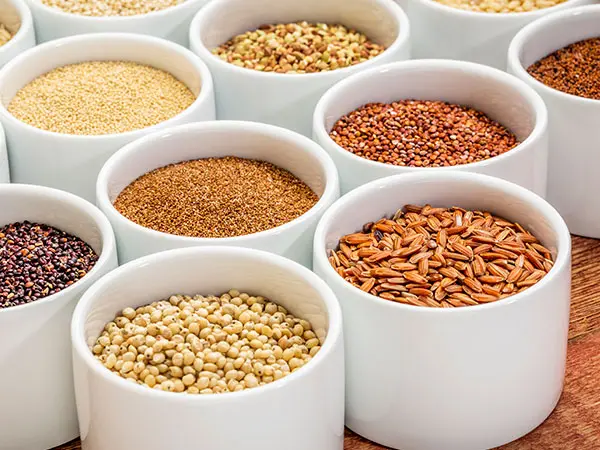
2. Legumes as healthy carbohydrate
Beans, lentils, and peas are rich sources of carbohydrates that are also high in fiber and protein. They have a low GI, which means they release glucose into the bloodstream slowly. Incorporating legumes into meals can help stabilize blood sugar levels and promote satiety. Varieties to consider include:
- Black beans: These beans are a good source of fiber and protein and can be used in a variety of dishes, such as soups, salads, and burritos.
- Chickpeas: Versatile and nutritious, chickpeas can be used to make hummus, curries, and roasted snacks.
- Lentils: Lentils cook quickly and can be used in soups, stews, and salads.
- Split peas: Split peas are commonly used in soups, especially in dishes like split pea soup.
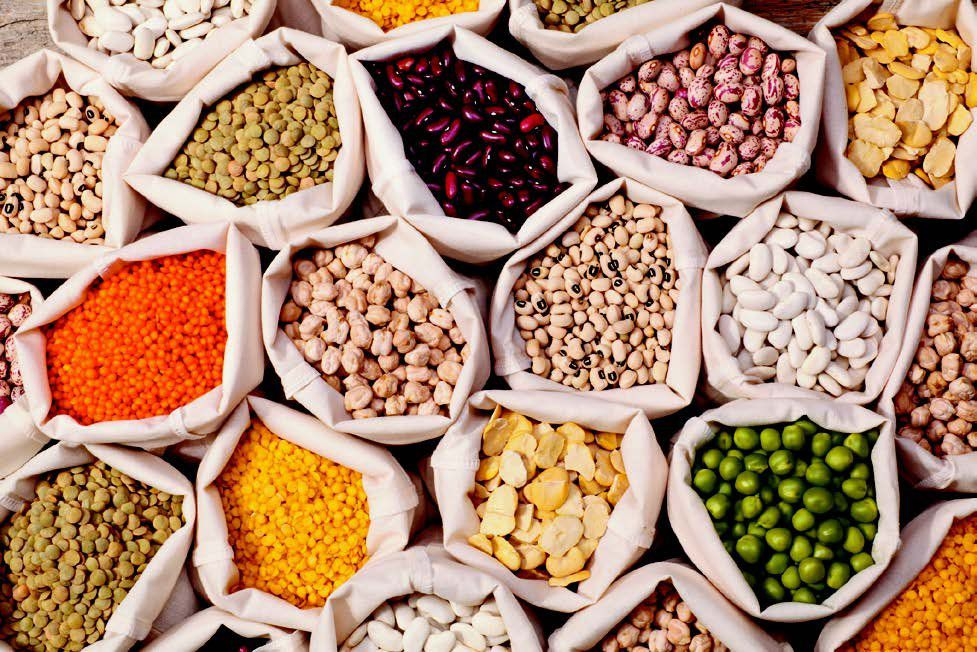
3. Non-Starchy Vegetables
Non-starchy vegetables are low in carbohydrates and calories, making them an excellent choice for people with diabetes. They are high in fiber, vitamins, and minerals and can be included in meals in generous portions without significantly affecting blood sugar levels. Examples include:
- Leafy greens: Spinach, kale, collard greens, and arugula are low in calories and carbohydrates and can be used as the base for salads or sautéed as a side dish.
- Broccoli: This cruciferous vegetable is high in fiber and can be steamed, roasted, or added to stir-fries.
- Cauliflower: Cauliflower can be used as a low-carb substitute for mashed potatoes, rice, or pizza crust.
- Bell peppers: These colorful vegetables are a rich source of vitamins and antioxidants and can be enjoyed raw in salads or as a crunchy snack.
- Cucumbers: Cucumbers are refreshing and low in carbs, making them a great addition to salads and sandwiches.
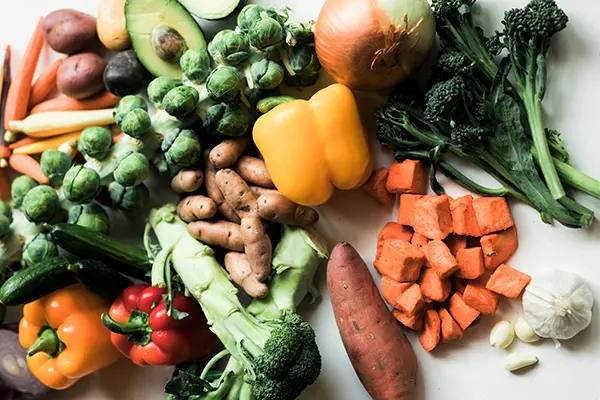
4. Berries
Berries are among the healthiest fruits for individuals with diabetes. They are relatively low in sugar compared to other fruits and are packed with antioxidants and fiber. Berries, such as strawberries, blueberries, raspberries, and blackberries, can be added to yogurt, oatmeal, or enjoyed as a snack.

5. Nuts and Seeds are the source of healthy carbohydrate
Nuts and seeds are rich in healthy fats, protein, and fiber. They are a good source of energy and can help stabilize blood sugar levels when consumed in moderation. Examples include almonds, walnuts, chia seeds, and flaxseeds. Be mindful of portion sizes, as they are calorie-dense.
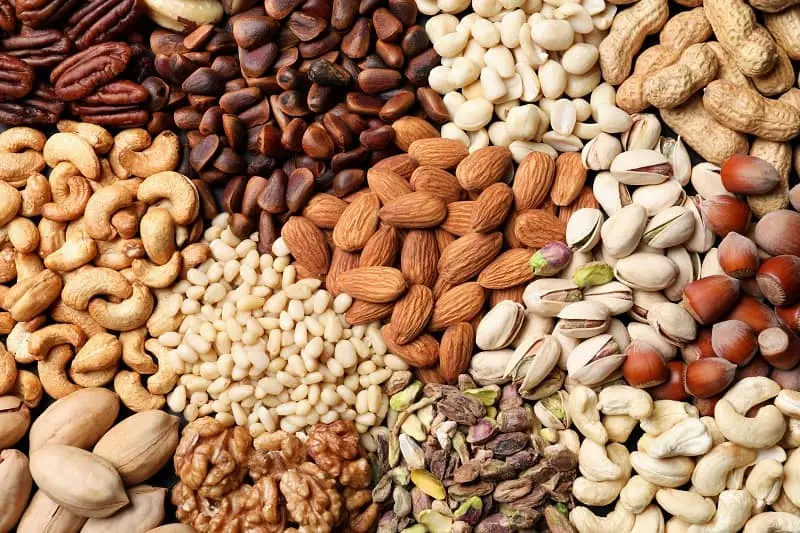
6. Greek Yogurt
Greek yogurt is an excellent source of protein and contains probiotics, which can benefit digestive health. Opt for plain, unsweetened Greek yogurt to avoid added sugars. You can add fresh berries, a drizzle of honey (in moderation), or a sprinkle of nuts for flavor.

7. Sweet Potatoes
Sweet potatoes are a nutrient-dense carbohydrate option. They are rich in vitamins, particularly vitamin A, and fiber. Sweet potatoes can be roasted, mashed, or used in soups and stews.
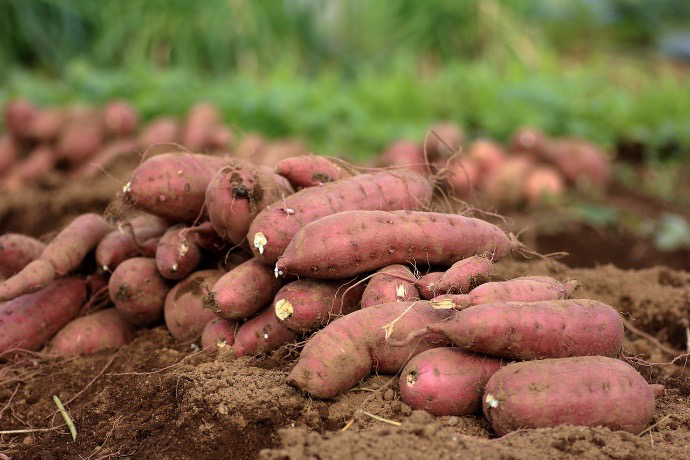
8. Whole Fruits (in Moderation) as healthy carbohydrate
While some fruits are higher in natural sugars, they can still be part of a diabetic-friendly diet when consumed in moderation. Portion control is essential, and it’s advisable to consume fruits with a lower GI. Examples include apples, pears, citrus fruits, and peaches.
9. Low-Fat Dairy
Low-fat or fat-free dairy products like milk and yogurt can be part of a balanced diet for people with diabetes. These products provide calcium and protein without excess saturated fat. Choose plain or unsweetened varieties to avoid added sugars.
Strategies for Managing healthy Carbohydrate Intake
Managing carbohydrate intake is key for blood sugar control in diabetes. Here are some strategies to help diabetic individuals make informed choices:
1. Carbohydrate Counting
Carbohydrate counting involves monitoring the grams of carbohydrates in meals and snacks to manage blood sugar levels. Many individuals with diabetes work with a registered dietitian to develop a meal plan that aligns with their carbohydrate goals.
2. Portion Control
Controlling portion sizes is essential to prevent overconsumption of carbohydrates. Using measuring cups, a food scale, or visual cues can help individuals estimate appropriate portion sizes.
3. Glycemic Index (GI) Awareness
Understanding the GI of foods can be useful for managing blood sugar levels. Foods with a low GI release glucose more slowly into the bloodstream. However, it’s important to note that the GI of a food can vary depending on factors like ripeness and preparation methods.
4. Balanced Meals
Balanced meals that include carbohydrates, protein, and healthy fats can help prevent rapid blood sugar spikes. Protein and fats can slow down the digestion and absorption of carbohydrates.
5. Regular Monitoring
Regular monitoring of blood glucose levels, as advised by a healthcare provider, can help individuals understand how different foods and meals affect their blood sugar.
6. Meal Planning
Planning meals and snacks in advance allows individuals to make thoughtful choices and ensure that their dietary goals align with their diabetes management plan.
Healthy carbohydrate options are essential for individuals with diabetes to maintain stable blood sugar levels and overall well-being. It’s important to focus on the quality of carbohydrates, prioritize whole foods, and control portion sizes. Working with a healthcare provider or registered dietitian can provide personalized guidance on managing diabetes through diet and lifestyle. By making informed choices and adopting a balanced approach to nutrition, individuals with diabetes can effectively manage their condition and enjoy a fulfilling and healthy life.
(Disclaimer: The information given here is based on general information. Before adopting it, definitely take medical advice. THE MONK does not confirm this.)

